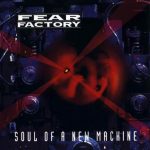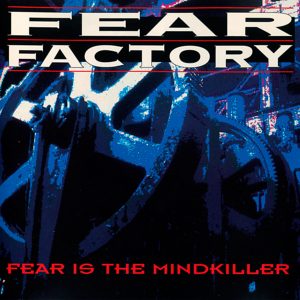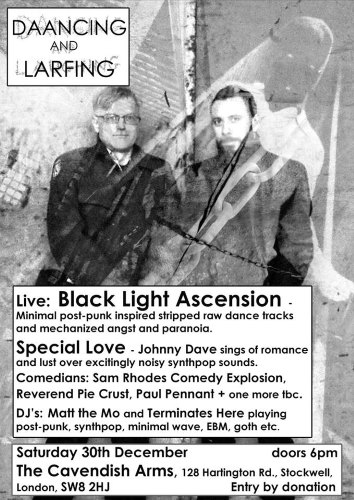
Suffer
The band formed in Los Angeles back in 1989, initially working under the name ‘Ulceration’ and then ‘Fear the Factory’ before settling on their final name ‘Fear Factory’. The line-up of Burton C Bell (vocals), Dino Cazares (guitar) and Raymond Herrera (drums) was established early on – the “no-one-ever-wants-that-job” bass player role was more flexible, but for the purpose of the early parts of this guide, it doesn’t matter who officially held the job at any point as Dino played bass on all their recordings until the mid-1990s.
Their early works sits in the musically narrow but culturally wide gap between the high-speed technical riffs of death metal and lo-fi grindcore abrasion, a style that was itself derived from the more extreme fringes of hardcore punk. There was a demo tape in 1991, followed by sessions with future nu-metal production giant (but then unknown) Ross Robinson. Contractual disputes resulted in a completed album being shelved until after the bands first split in 2002, when it was ironically issued to fulfil another contractual technicality.
Whilst the music has now been out there for almost twenty years, the legal and musical controversies relating to it’s release and it’s presence in the bands canon of official albums mean it’s not the right place to start this guide – I’ll cover it later, though. If you want the old-school FF sound as it was meant to be heard, the first port of call is Soul of a New Machine.
It makes an immediate impression with Martyr – the opening riff barrage gives way to Burton’s trademark ‘dry lung’ vocals, via which he roars an emotive tirade about his dissatisfaction with life at the time. And when we get to the “Suffer Bastard” chorus, it becomes clear he can also sing. Alternation of death growl and clean vocals would become his trademark – many metal bands would later adopt something approximating to this style, but here’s where it effectively began. Whilst this particular song is personal in nature, the majority of the songs make some form of social statement about the human race and the ‘machine’ it built, keeping true to the anti-establishment attitude derived from their partial roots in grindcore.
Some, like Arise Above Oppression, are straightforward blasts against the system. Others, like Big God/Raped Souls and Crash Test deal with specific forms of abuse. The most successful of these is Scapegoat – inspired by Dino’s arrest and imprisonment at the hands of the institutionally racist American police (something nearly three decades hasn’t solved), it’s attack on an unjust system sees Burton’s best use of his dual vocal styles, and probably the catchiest refrain other than “Martyr”.
I say this because if this album has a flaw, it’s that the songwriting isn’t always up to the standards of the biggest hitters. Scumgrief and Suffer Age (officially the first FF song) are partially successful if sometimes structurally unsteady attempts at working slower passages into the six-string rhythmic assault, and Self-Immolation delivers a mid-tempo grind that’s the first of many songs about people being set on fire (self-inflicted or otherwise). But amongst these are a few too many thrashy blasts that are competently recorded but leave no lasting impact. Despite claims this is a ‘concept’ album, it still at this stage feels like a collection of songs, some better than others. But the glory days weren’t far off.
Singles and Versions: The album has been reissued several times, but always with the same songs. There’s some 2CD editions out there, but these just feature the EP I’m about to cover.
As a sign of things to come, Bill Leeb and Rhys Fulber of Front Line Assembly were called in remix a number of the songs for the 1993 EP Fear Is The Mindkiller. Martyr (Suffer Bastard Mix) goes for a driving tech-industrial surge, reminiscent in parts of FLA’s later hit “Plasticity”. Scapegoat (Pigfuck Mix) is as unsubtle as the title suggests – working various samples and crashing metal sounds into the original song without substantially modifying the flow of the thing.
Scumgrief (Deep Dub Trauma Mix) might be a little bit too much Vancouver Industrial reference for the average metalhead, but the FLA style this time adds real atmosphere and a more cohesive structure to the original. But it was the two mixes of Self-Immolation (both quite similar) that really throw down the gauntlet for every industrial musician who’d remix a metal band, combing a bass stab from the Tactical Neural Implant school, looped vocals and as much electronic trickery as they could muster.
But successful as this EP was, it still has the feeling of a band of one style adapting music from a band of another style to fit their way of doing things. The true meeting of man and machine was still to come……




